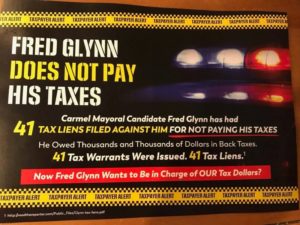 Jack (Kevin Spacey): “Why in the world do you want to go digging any deeper into the Nite Owl Killings, Lieutenant?”
Jack (Kevin Spacey): “Why in the world do you want to go digging any deeper into the Nite Owl Killings, Lieutenant?”
Ed (Guy Pearce): “Rollo Tomasi.”
Jack: “Is there more to that, or am I supposed to guess?”
Ed: “Rollo… was a purse snatcher. My father ran into him off duty, and he shot my father six times and got away clean. No one even knew who he was. I just made the name up to give him some personality. Rollo Tomasi’s the reason I became a cop. I wanted to catch the guys who thought they could get away with it. It was supposed to be about justice. Then somewhere along the way I lost sight of that.”
This scene from the 1997 hit crime drama L.A. Confidential embodies the metaphor of those that get away with committing wrongs and never being held to account. Such wrongs can be overt and criminal in nature. They can also be more subtle and take advantage of loopholes in our system of laws to achieve their ends while staying within the letter (if not the spirit) of the laws.

 Just this week, the Hamilton County Elections Board dismissed a request from Hamilton County Democratic Party chair Joe Weingarten to investigate rival allegations of bribery and extortion by the campaigns of incumbent Carmel mayor Jim Brainard and his challenger, Hamilton Councilor Fred Glynn. Affidavits submitted by members of both campaigns told of a February meeting in which it was discussed how Brainard could help Glynn in a future campaign if Glynn would agree to drop out of this year’s Republican primary race for mayor. Indeed, sworn testimony was provided that a quid pro quo was offered, though no money changed hands.
Just this week, the Hamilton County Elections Board dismissed a request from Hamilton County Democratic Party chair Joe Weingarten to investigate rival allegations of bribery and extortion by the campaigns of incumbent Carmel mayor Jim Brainard and his challenger, Hamilton Councilor Fred Glynn. Affidavits submitted by members of both campaigns told of a February meeting in which it was discussed how Brainard could help Glynn in a future campaign if Glynn would agree to drop out of this year’s Republican primary race for mayor. Indeed, sworn testimony was provided that a quid pro quo was offered, though no money changed hands.
 False allegations of tax liens against Fred Glynn late in the primary race by the Brainard campaign ultimately led to a large social media backlash, but not before turning several undecided voters away from Glynn and also harming the business of his wife, Beth. The allegations stem from when Glynn failed to notify the state Department of Revenue about the closure of his insurance business and then received a tax lien for each of the 41 months his business remained on the books before being notified of the closure. The Department of Revenue then settled the liens without any payments or penalties. Yet, Brainard and his campaign strategists decided to play fast and lose with information they knew to not be accurate and portrayed the liens as an outstanding issue. Glynn is purportedly still contemplating defamation litigation – stay tuned.
False allegations of tax liens against Fred Glynn late in the primary race by the Brainard campaign ultimately led to a large social media backlash, but not before turning several undecided voters away from Glynn and also harming the business of his wife, Beth. The allegations stem from when Glynn failed to notify the state Department of Revenue about the closure of his insurance business and then received a tax lien for each of the 41 months his business remained on the books before being notified of the closure. The Department of Revenue then settled the liens without any payments or penalties. Yet, Brainard and his campaign strategists decided to play fast and lose with information they knew to not be accurate and portrayed the liens as an outstanding issue. Glynn is purportedly still contemplating defamation litigation – stay tuned.
Jim Brainard and pro-Brainard candidates for other municipal offices continue to be the beneficiaries of an ongoing pattern of large directed campaign contributions from those that stand to gain from business with City Hall. A cursory review of pre-primary and supplemental campaign finance reports filed with the Hamilton County Elections Office list these entities – a who’s-who of companies and their principals that have reaped millions of dollars of profits in taxpayer-backed development projects and successful appeals of zoning restrictions.
 Section 3-9-2-4 of the Indiana Code sets forth limits on direct and in-kind contributions made by corporations and labor organizations to state committees of political parties, as well candidates for statewide or local office. However, there are several loopholes to these limits. Section 3-9-2-5(b) permits a corporation or labor organization to make donations without such limits to a political action committee established and controlled by them. Moreover, in order to be considered a corporation for the purposes of limits on campaign donations, an entity must be subject to the requirements of Title 23 of the Indiana Code and have articles of incorporation filed with the state of Indiana or another state. This means that limited liability corporations (LLC), limited liability partnerships (LLP), partnerships, sole proprietorship and unincorporated organizations are not considered corporations under this statute and are exempt from any limits on how much they can donate to specific candidates.
Section 3-9-2-4 of the Indiana Code sets forth limits on direct and in-kind contributions made by corporations and labor organizations to state committees of political parties, as well candidates for statewide or local office. However, there are several loopholes to these limits. Section 3-9-2-5(b) permits a corporation or labor organization to make donations without such limits to a political action committee established and controlled by them. Moreover, in order to be considered a corporation for the purposes of limits on campaign donations, an entity must be subject to the requirements of Title 23 of the Indiana Code and have articles of incorporation filed with the state of Indiana or another state. This means that limited liability corporations (LLC), limited liability partnerships (LLP), partnerships, sole proprietorship and unincorporated organizations are not considered corporations under this statute and are exempt from any limits on how much they can donate to specific candidates.
As a result, the major donors all take advantage of this massive loophole to buy as much influence as they can – literally, considered by them to be a pittance and a cost of doing business with the Brainard political machine in Carmel. Pedcor Companies got around the limits by directing over $20,000 in donations through exempt subsidiary Pedcor Investments LLC, as well as thousands of dollars in individual donations from principals Jerry Pedigo, Bruce Cordingley and Phillip Stoffregen. Likewise, Old Town Companies used its own status as a LLC and paired it with sister entities Old Town Design Group LLC and Blackwell Park Development Partners LLC to spread around over $20,000 to Brainard and his slate of candidates.
And the list goes on and on – Veracity IIR LLC/Swan Software, Barnes and Thornburg, Krieg Devault LLP, Drewry Simmons Vornheim LLP, KRG Finance, Lauth Property Group LLC, Ambrose Services, LLC, Yasmin Stump Law Group PC and Orchard Software Corporation, just to name a few. A naked pay-to-play scheme that would run afoul of racketeering laws in most other states. But not in Indiana, where a one-party supermajority has written and updated laws to protect this kind of naked influence peddling in order to protect the party’s hold on power at all levels of government.
 Those that have seen the movie L.A. Confidential know that, in the end, Rollo Tomasi is how the villain is exposed and conquered. In Carmel, each of us can reject politics as usual and demand an accounting from our elected leaders. At the very least, the honorable thing is for elected officials to recuse themselves from voting on any action brought before them by a campaign donor. Recusal is not a “yes” vote or a “no” vote – simply a recognition that a conflict of interest exists, and the elected official chooses integrity and public service over rubber-stamp approval.
Those that have seen the movie L.A. Confidential know that, in the end, Rollo Tomasi is how the villain is exposed and conquered. In Carmel, each of us can reject politics as usual and demand an accounting from our elected leaders. At the very least, the honorable thing is for elected officials to recuse themselves from voting on any action brought before them by a campaign donor. Recusal is not a “yes” vote or a “no” vote – simply a recognition that a conflict of interest exists, and the elected official chooses integrity and public service over rubber-stamp approval.
Carmel deserves better.

